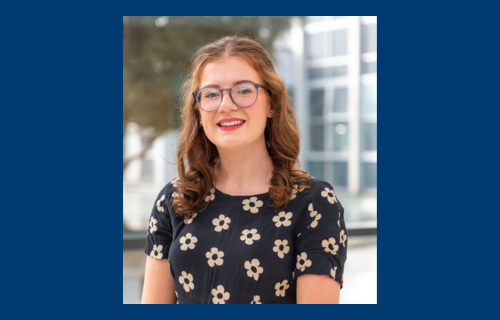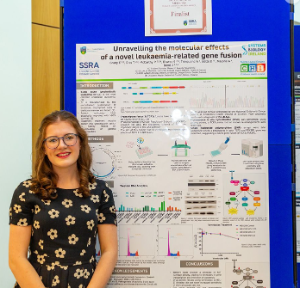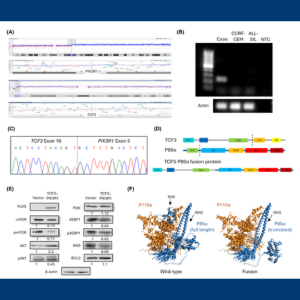UCD School of Medicine student Emma Grady's research published in prestigious journal
Tuesday, 18 June, 2024
Share

Congratulations to UCD School of Medicine student, Emma Grady, whose important research has been published in the British Journal of Haematology.
 Emma is also an Ad Astra Academy Scholar and she submitted this research for the 2023 Student Summer Research Awards (SSRA). Emma was named the SSRA 2023 Silver Medal winner for her project titled: UNRAVELLING THE MOLECULAR EFFECTS OF A NOVEL LEUKAEMIA-RELATED GENE FUSION.
Emma is also an Ad Astra Academy Scholar and she submitted this research for the 2023 Student Summer Research Awards (SSRA). Emma was named the SSRA 2023 Silver Medal winner for her project titled: UNRAVELLING THE MOLECULAR EFFECTS OF A NOVEL LEUKAEMIA-RELATED GENE FUSION.
The team behind the research are part of Professor Jonathan Bond's group at Systems Biology Ireland. Prof Bond said, "This study started when the clinical team in Children's Health Ireland at Crumlin discovered a new gene fusion in a patient's leukaemia (blood cancer) cells. Fusions are very common in leukaemia and they often affect how these cancers respond to treatment. We asked Emma to help us investigate this novel finding during her summer project. Emma used several different laboratory techniques to show that the fusion might make blood cancer cells less aggressive, which means they may respond better to chemotherapy. As it turned out, this was in line with the clinical course of the patient, who happily is now doing very well after finishing their treatment".
Emma's lab co-supervisors Tânia Dias and Sharmila Biswas also played a pivotal role in the research.
Paper title: A novel TCF3::PIK3R1 fusion linked to decreased PI3K-AKT signalling activity in paediatric B-acute lymphoblastic leukaemia.
 The research concludes with the following:
The research concludes with the following:
Our results identify PIK3R1 as a new member of the TCF3 recombinome and provide potential evidence of this fusion's biological activity. PIK3R1 mutations are linked to poor prognosis in several malignancies, and while these mutations have been detected in blood cancers, their prognostic relevance in leukaemia has not been reported. Although there have been rare cases of PIK3R1 fusions in other cancers, to our knowledge, this is the first report of a leukaemia-related PIK3R1 translocation. While our experimental results suggest that this fusion may modulate PI3K-AKT activity, and while treatment response was very favourable in this patient, caution should of course be taken in interpreting these individual case findings.
To read the full paper, visit (opens in a new window)here.
Congratulations to all members of the team behind this research:
(opens in a new window)Emma Grady, (opens in a new window)Sharmila Biswas, (opens in a new window)Tânia Dias, (opens in a new window)Peter McCarthy, (opens in a new window)Cosmin Tudose, (opens in a new window)David Betts, (opens in a new window)Andrea Malone, (opens in a new window)Jonathan Bond